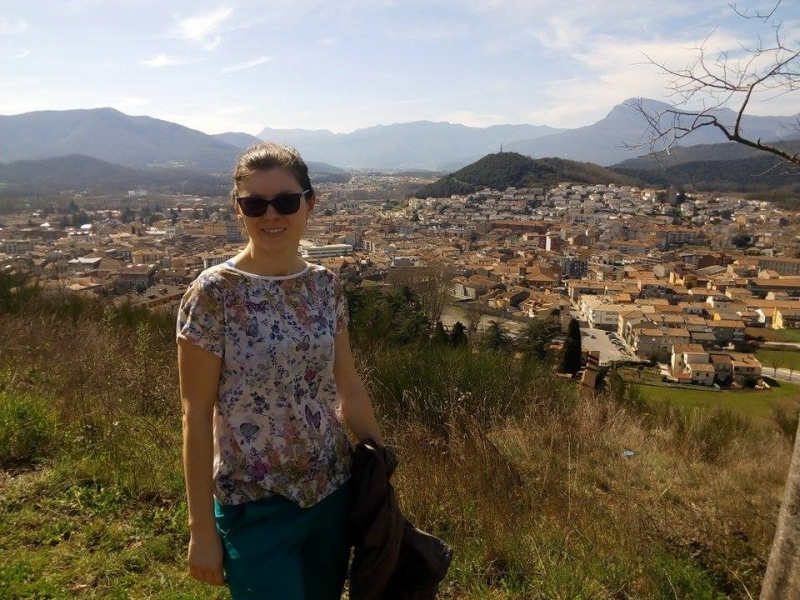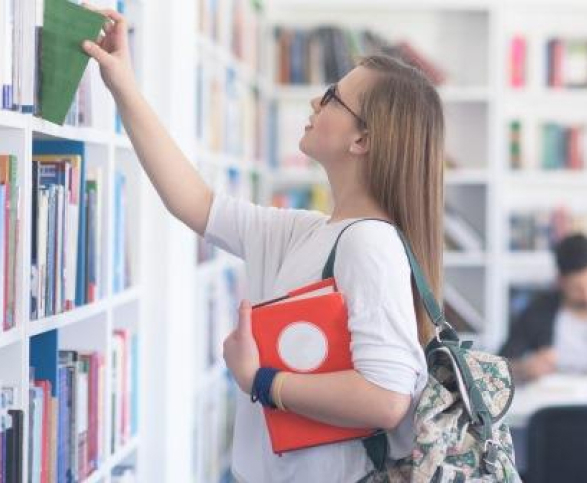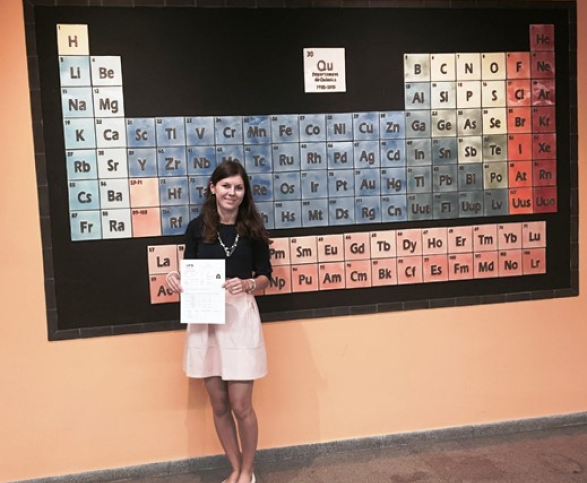
Barbara Łopieńska is the first Maspex Foundation Scholar – in the academic year 2016/2017, she began her studies at the Universitat Autònoma de Barcelona. Her major: Industrial Chemistry and Introduction to Chemical Research. Today, she works in the pharmaceutical industry.
Why did you decide to study abroad?
Since my first visit to Spain at the age of 19, I knew I wanted to come to Barcelona for a longer stay someday. In 2012, I took part in a student exchange under the Erasmus program and went to Girona for one semester. Immediately after that, I started looking for opportunities to study chemistry in English in Barcelona. I found a university with a suitable program (industrial chemistry) and when I heard about the Maspex Foundation scholarship program, I decided to give it a try. I think a degree from a foreign university definitely sets us apart in the Polish job market and, if we wish to stay abroad, it opens doors to that foreign market.
What were the biggest challenges you faced?
The biggest challenge was probably organizing my life in a foreign language. Suddenly, I had to find an apartment and handle all the formalities, such as opening a bank account and getting an internet contract – in my case, in Spanish. But I treated it as a challenge and every “sorted out” issue gave me satisfaction. Studying in English was obviously harder than in Polish due to the specific vocabulary. Although I had a subject called “chemistry in English” in Poland, the range of words was limited. So I spent more time translating some texts or presentations. The first semester was difficult due to a large number of various classes and assessments in a short period.
What were the biggest advantages of studying abroad?
I believe that studying abroad teaches openness, tolerance, a different perspective on the world, and patience. Apart from gaining a lot of knowledge and learning the language, we also get to know other cultures. You have to step out of your so-called comfort zone, which is not always easy. We have to deal with new situations far from home. This definitely teaches resourcefulness and stops us from being “ashamed” of speaking a foreign language and making grammatical mistakes, as they ultimately do not matter. Small successes bring a lot of joy. It is also great to see a different education system and compare it with what we know from our country. We can meet interesting people from all over the world and make new friends.
What was the application and admission process like for a foreign university?
All the documents I had from my studies in Poland (diplomas, supplements with grades and a list of subjects) had to be translated into English and sent to the university by the specified deadline (online recruitment). The Autonomous University of Barcelona did not require additional documents such as a CV or a motivation letter.
What were the differences between the education system abroad and that in Poland?
The first semester was typically theoretical. We had many lectures and exercises, and classes lasted practically all day (9:00-18:00 with a lunch break). Three large thematic blocks: “industrial chemistry,” “material chemistry,” and “industrial and chemical research” were divided into smaller subjects, totaling about 40. All ended with an assessment in the form of a presentation, colloquium, or report. There was definitely more group work and presenting results to the forum. My lecturers were university employees, but also chemists working in companies, which rarely happens in Poland. Students address all the instructors by first name, which definitely shortens the distance. The practical part, including laboratory internships at the university, took place at the end of the first semester, and a six-month internship in a company, based on which I wrote my master’s thesis, in the second semester. In Poland, theoretical and practical classes take place simultaneously.
How did your career path go? What do you do today?
As part of the second semester of my master’s studies, I did an internship in the quality control laboratory of a company that produces animal medicines. The company’s employees were very kind and helpful. After defending my master’s thesis, I was offered a job at that company – which I accepted. I currently work for a Spanish company producing vaccines for animals, analyzing finished products and raw materials in the laboratory. The company also entered the field of human medicine, producing the first Spanish Covid-19 vaccine. I really like my job – it is very varied, dynamic, and not limited to just a computer. It involves collaboration with other departments of the company.
Do you have any advice for someone who also wants to study abroad?
First of all, do not be afraid 🙂 Usually, lecturers have a very positive attitude towards students and always find time for them if needed. The experience of studying abroad can teach us a lot. So if you have the opportunity, it’s really worth taking advantage of the Maspex Foundation program! It is definitely an opportunity for development and a great adventure. It is worth preparing the recruitment documents early, including their translations, especially if the university has additional requirements. It is also worth finding out in advance about accommodation options in dormitories or renting an apartment. Often, on internet forums, we can already meet our future colleagues online who are locals and looking for roommates.


